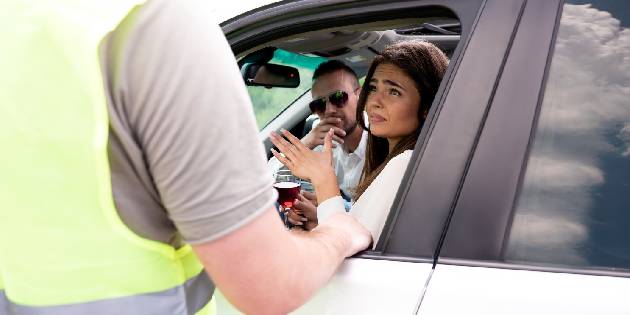
It started when the State of New York enacted the nation’s first law that made it illegal to drive drunk back in 1910. Since then, every state in the union has passed laws prohibiting the act of driving while under the influence of alcohol on public highways and other public properties.
Laws governing drunk driving vary from state to state, including the regulations for DUI statutes pertaining to driving on private property. Depending on the state, penalties for driving under the influence on public roadways may be different from violations on private property.
Several states take care of the issue by using language in their DUI laws that have been interpreted to include both public and private property, such as:
The courts have determined these phrases to encompass any area of the state where a vehicle can be driven. In these states with more broad DUI statutes, it is illegal to drive while under the influence of alcohol anywhere in the state, whether it is public land or privately owned.
Factors that can help to determine whether the law considers a property to be private or public when it comes to enforcing DUI laws including:
Some states are more specific with their DUI laws, including clearer definitions of the types of privately owned property that are included in the statutes. For example, some states make it illegal for someone under the influence of alcohol to operate a motor vehicle on property that is open or accessible to the public or in private areas that the public has a right of access for vehicles.
While laws vary from state to state, law enforcement officers generally have the right to cite you for driving while intoxicated and arrest you on your private property for a DUI offense. Police can and will stop drivers when they have reasonable suspicions a driver is operating a motor vehicle while drunk on locations where it may seem like it is safe to drive while impaired, such as:
Apartment complexes and condominium parking lots
Some areas where DUI statutes may not apply include the driveways of private
residential properties.
Driving under the influence is a serious charge that can have long-lasting consequences on your freedom and your ability to legally operate a motor vehicle. If you or a loved one needs the assistance of a qualified lawyer, LegalInfo.com can help you find attorneys in your area specializing in DUI cases. Contact us today to locate a qualified lawyer for your specific case.
| Cookie | Duration | Description |
|---|---|---|
| cookielawinfo-checkbox-analytics | 11 months | This cookie is set by GDPR Cookie Consent plugin. The cookie is used to store the user consent for the cookies in the category "Analytics". |
| cookielawinfo-checkbox-functional | 11 months | The cookie is set by GDPR cookie consent to record the user consent for the cookies in the category "Functional". |
| cookielawinfo-checkbox-necessary | 11 months | This cookie is set by GDPR Cookie Consent plugin. The cookies is used to store the user consent for the cookies in the category "Necessary". |
| cookielawinfo-checkbox-others | 11 months | This cookie is set by GDPR Cookie Consent plugin. The cookie is used to store the user consent for the cookies in the category "Other. |
| cookielawinfo-checkbox-performance | 11 months | This cookie is set by GDPR Cookie Consent plugin. The cookie is used to store the user consent for the cookies in the category "Performance". |
| viewed_cookie_policy | 11 months | The cookie is set by the GDPR Cookie Consent plugin and is used to store whether or not user has consented to the use of cookies. It does not store any personal data. |